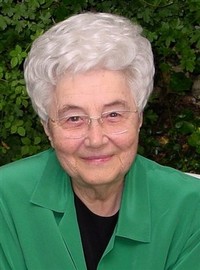 A brief story about Chiara Lubich, the Focolari Movement and the new leader of Focolari.
A brief story about Chiara Lubich, the Focolari Movement and the new leader of Focolari.
And the first Focolari university…
 A brief story about Chiara Lubich, the Focolari Movement and the new leader of Focolari.
A brief story about Chiara Lubich, the Focolari Movement and the new leader of Focolari.
And the first Focolari university…
While musical instruments were playing, Cecilia sang to the Lord, saying:
 Let my heart be undefiled, that I be not confounded.
Let my heart be undefiled, that I be not confounded.
O God, Who does gladden us by the annual solemnity of blessed Cecilia, Thy Virgin and Martyr, grant that as we venerate her by this festival we may also follow in the example of her holy life.
But Oh! What Art Can Teach,
What Human Voice Can Reach
The Sacred Organ’s Praise?
Notes Inspiring Holy Love,
Notes That Wing Their Heavenly Ways
To Mend The Choirs Above
(John Dreyden, Song for St. Cecilia’s Day, 1687.)
Do you know the work of Georges Rouault? Well you should. Franco Mormando writes
“Of Clowns And Christian Conscience: The art of Georges Rouault”
in the November 24th issue of America Magazine. The article follows.
Georges Rouault was 34 years old and barely recovered from a physical and nervous breakdown when he had a life-changing epiphany in 1905, which he described in a letter to his friend, édouard Schuré. While out walking one day, the artist happened to come across a “nomad caravan, parked by the roadside.” It was a circus, preparing for its next public performance. Rouault’s eye fell upon one of the figures: an “old clown sitting in a corner of his caravan in the process of mending his sparkling and gaudy costume.” It was then that Rouault had a piercing flash of insight, one that was to affect deeply his vision of life and art.
The artist was utterly struck by the jarring contrast between the clown’s external garb and
 professional accoutrements–“brilliant scintillating objects, made to amuse”–and the wretchedness of his condition as an impoverished, vagabond laborer living on the fringes of society, enduring a “life of infinite sadness, if seen from slightly above.” From that contrast came another equally eye-opening realization: “I saw quite clearly that the ‘Clown’ was me, was us, nearly all of us…. This rich and glittering costume, it is given to us by life itself, we are all more or less clowns, we all wear a glittering costume….” (Rouault summed up this vision in several studies entitled “Sunt Lacrymae Rerum”–“There are tears [of grief] at the very heart of things.”)
professional accoutrements–“brilliant scintillating objects, made to amuse”–and the wretchedness of his condition as an impoverished, vagabond laborer living on the fringes of society, enduring a “life of infinite sadness, if seen from slightly above.” From that contrast came another equally eye-opening realization: “I saw quite clearly that the ‘Clown’ was me, was us, nearly all of us…. This rich and glittering costume, it is given to us by life itself, we are all more or less clowns, we all wear a glittering costume….” (Rouault summed up this vision in several studies entitled “Sunt Lacrymae Rerum”–“There are tears [of grief] at the very heart of things.”)
From that moment on, the clown, as well as other circus figures and denizens of the disreputable periphery of society, haunted Rouault’s imagination and art, becoming one of his signature icons. An icon of what? Of the painful disconnection between appearances and reality, between who we are on the inside and who we pretend to be, or what society judges us to be, on the outside. Rouault confronts us on the one hand with clowns and prostitutes, whose real (if battered and buried) human dignity nonetheless still emits some light from within their souls, and on the other hand with the furthest extreme of the social spectrum: the rich, the well-born, the powerful, the “glitterati,” wearing the masks of their expensive clothes and polished manners, hiding cruel, narcissistic hearts full of dust and ashes. (See, for example, Rouault’s “The Accused” of 1907 and “Superman” of 1916). In his professional life Rouault knew this type well, for it was and is a familiar figure in the upper echelons of the art establishment. His own art dealer, the unsavory but hugely successful Ambroise Vollard, certainly seems to have been of that ilk.
To commemorate the 50th anniversary of Rouault’s death, the McMullen Museum at Boston College has mounted a magnificent, comprehensive review of his prodigiously productive career, Mystic Masque: Semblance and Reality in Georges Rouault, 1871-1958, on view until Dec. 7. This landmark exhibition features over 180 works from every period of the artist’s life, some never before seen in the United States. The exhibition was boldly conceived and curated by Stephen Schloesser, S.J., of the Boston College History Department, who also edited an ample and illuminating catalog that features interdisciplinary contributions from more than 20 scholars.
The key word is “masque,” meaning both “theatrical face cover” and “masked pageant” (think of Edgar Allan Poe’s “Masque of the Red Death”). Not only in his clown paintings, but everywhere in his art, Rouault explores–and provokes his viewers into exploring–the private human reality behind the public mask in order to expose the soul. In that exposure, the high and mighty are reduced to the level of the risible, if not the pathetic (as in his 1927 aquatint, “As proud of her noble stature as if she were still alive”), while the lowly are made to shine in their inherent human dignity. Again, as the artist himself explained to Schuré: “I have the defect…of leaving no one his glittering costume, be he king or emperor. I want to see the soul of the man in front of me…and the greater he is, the more mankind glorifies him, the more I fear for his soul.” In Schloesser’s view, “Rouault felt compelled to unmask society’s well-respected and well-born, and to raise up society’s lowly and overlooked.” In other words, Rouault’s art comforts the afflicted and afflicts the comfortable. It is an art that a Peter Maurin or a Dorothy Day would assuredly have cherished.
 With his fertile imagination and years of productivity, Rouault treated many different themes beyond clowns and masks and employed a variety of media and styles. A revelation for me, and, I suspect, for many viewers, is the Rembrandt-inspired style of his earliest period, represented in the exhibition by two stirring canvases, “The Way to Calvary” and “Job.” But perhaps his most enduring stylistic trademark is the use of richly luminous colors gleaming forth from a heavy matrix of thick black lines, clearly the influence of his youthful apprenticeship with stained-glass makers. The exhibition includes one actual stained-glass window by Rouault, a crucifixion scene, and it is simply a gem in the literal sense of that word.
With his fertile imagination and years of productivity, Rouault treated many different themes beyond clowns and masks and employed a variety of media and styles. A revelation for me, and, I suspect, for many viewers, is the Rembrandt-inspired style of his earliest period, represented in the exhibition by two stirring canvases, “The Way to Calvary” and “Job.” But perhaps his most enduring stylistic trademark is the use of richly luminous colors gleaming forth from a heavy matrix of thick black lines, clearly the influence of his youthful apprenticeship with stained-glass makers. The exhibition includes one actual stained-glass window by Rouault, a crucifixion scene, and it is simply a gem in the literal sense of that word.
Rouault uses the same stained-glass-inspired style to perhaps its most memorable effect in
 his many depictions of the “Holy Face,” the face of the suffering Jesus as traditionally seen in representations of the sudarium of St. Veronica, which, according to pious belief, shows the true likeness of Christ. The face of Christ is an almost obsessive visual leitmotif for Rouault, a potent symbol of the suffering of an innocent humanity oppressed by an unjust society.
his many depictions of the “Holy Face,” the face of the suffering Jesus as traditionally seen in representations of the sudarium of St. Veronica, which, according to pious belief, shows the true likeness of Christ. The face of Christ is an almost obsessive visual leitmotif for Rouault, a potent symbol of the suffering of an innocent humanity oppressed by an unjust society.
Another disturbing existential question is raised by Rouault’s art, most literally in the title he gives to several of his works: “Are we not all slaves?” Here Rouault is speaking from bitter personal experience. In 1917, desperately poor and with a family to support, he was forced into what was essentially indentured servitude to that same infamous art dealer, Ambroise Vollard, or Fifi Voleur (Fifi the Thief) as Gauguin called him, a cunning businessman whose ambiguous personal life had much to hide, as Christopher Benfey has probingly written for the online magazine Slate.
Those who prefer art that presents only what Charles Baudelaire would call “la vie en beau” (the pretty side of life) or who shun the examination of conscience might not fully savor this exhibition, but Rouault’s style is so visually compelling that it will certainly arrest anyone’s attention and ultimately give delight on some level. For many viewers, I dare say, questions surrounding the moral life, social justice, sincerity and authenticity will likely dominate their response to this exhibition, as they dominated Rouault’s artistic imagination and as they dominate the conception of the exhibition itself.
Rouault is probably familiar to anyone who went through the parochial school system in the United States. My own introduction to “Rouault the Catholic artist” occurred many years ago at Cardinal Hayes High School in the Bronx. Yet Rouault himself (a true believer, albeit not of the orthodox kind) rejected the very notion of sacred art or the “Catholic artist.” “There is no sacred art,” he has been quoted as having said. “There is just art pure and simple.” Nonetheless, Rouault’s work not only has the power to please the eye and feed the mind, but to quicken our attention to the moral and spiritual dimension of human experience and to help move us to a higher plane of consciousness.
Blessed art thou, O may, who did believe; those things shall be fulfilled in thee which were spoken to thee by the Lord, alleluia.
 O God, Who did will that the blessed Mary ever Virgin, the dwelling place of the Holy Spirit, should this day be presented in the temple; we beseech Thee, grant that through her intercession we may be found worthy to be present in the temple of Thy glory.
O God, Who did will that the blessed Mary ever Virgin, the dwelling place of the Holy Spirit, should this day be presented in the temple; we beseech Thee, grant that through her intercession we may be found worthy to be present in the temple of Thy glory.
Mater Amabilis
Mother most lovable
WHY is she “Amabilis” thus specially? It is because she was without sin. Sin is something odious in its very nature, and grace is something bright, beautiful, attractive.
However, it may be said that sinlessness was not enough to make others love her, or to make her dear to others, and that for two reasons: first, because we cannot like anyone that is not like ourselves, and we are sinners; and next, because her being holy would not make her pleasant and winning, because holy persons whom we fall in with, are not always agreeable, and we cannot like them, however we may revere them and look up to them.
Now as to the first of these two questions, we may grant that bad men do not, cannot like good men; but our Blessed Virgin Mary is called Amabilis, or lovable, as being such to the children of the Church, not to those outside of it, who know nothing about her; and no child of Holy Church but has some remains of God’s grace in his soul which makes him sufficiently like her, however greatly wanting he may be, to allow of his being able to love her. So we may let this question pass.
But as to the second question, viz., How are we sure that our Lady, when she was on earth, attracted people round her, and made them love her merely because she was holy? — considering that holy people sometimes have not that gift of drawing others to them.
To explain this point we must recollect that there is a vast difference between the state of a soul such as that of the Blessed Virgin, which has never sinned, and a soul, however holy, which has once had upon it Adam’s sin; for, even after baptism and repentance, it suffers necessarily from the spiritual wounds which are the consequence of that sin. Holy men, indeed, never commit mortal sin; nay, sometimes have never committed even one mortal sin in the whole course of their lives. But Mary’s holiness went beyond this. She never committed even a venial sin, and this special privilege is not known to belong to anyone but Mary.
Now, whatever want of amiableness, sweetness, attractiveness, really exists in holy men arises from the remains of sin in them, or again from the want of a holiness powerful enough to overcome the defects of nature, whether of soul or body; but, as to Mary, her holiness was such, that if we saw her, and heard her, we should not be able to tell to those who asked us anything about her except simply that she was angelic and heavenly.
Of course her face was most beautiful; but we should not be able to recollect whether it
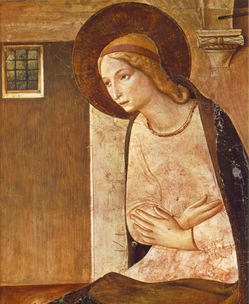 was beautiful or not; we should not recollect any of her features, because it was her beautiful sinless soul, which looked through her eyes, and spoke through her mouth, and was heard in her voice, and compassed her all about; when she was still, or when she walked, whether she smiled, or was sad, her sinless soul, this it was which would draw all those to her who had any grace in them, any remains of grace, any love of holy things. There was a divine music in all she said and did — in her mien, her air, her deportment, that charmed every true heart that came near her. Her innocence, her humility and modesty, her simplicity, sincerity, and truthfulness, her unselfishness, her unaffected interest in every one who came to her, her purity — it was these qualities which made her so lovable; and were we to see her now, neither our first thought nor our second thought would be what she could do for us with her Son (though she can do so much), but our first thought would be, “Oh, how beautiful!” and our second thought would be, “Oh, what ugly hateful creatures are we!”
was beautiful or not; we should not recollect any of her features, because it was her beautiful sinless soul, which looked through her eyes, and spoke through her mouth, and was heard in her voice, and compassed her all about; when she was still, or when she walked, whether she smiled, or was sad, her sinless soul, this it was which would draw all those to her who had any grace in them, any remains of grace, any love of holy things. There was a divine music in all she said and did — in her mien, her air, her deportment, that charmed every true heart that came near her. Her innocence, her humility and modesty, her simplicity, sincerity, and truthfulness, her unselfishness, her unaffected interest in every one who came to her, her purity — it was these qualities which made her so lovable; and were we to see her now, neither our first thought nor our second thought would be what she could do for us with her Son (though she can do so much), but our first thought would be, “Oh, how beautiful!” and our second thought would be, “Oh, what ugly hateful creatures are we!”
(taken from Card. John Henry Newman’s “Discourses to Mixed Congregations”, 1849)
In the past month or so I advertized a lecture series at Columbia University entitled “What’s faith got to do with it?” given by Monsignor Lorenzo Albacete.
The point of the lectures was to think about the relationship between faith and life in four important human experiences: politics, science, economics and affectivity. Often I hear, or it is intimated, that we live in a world where the vast majority of the citizens either don’t care about faith or are searching for “something” (or both). There is a sense of craziness going on in today’s world that can’t be ignored by believers. Why? How is that people get out of bed in the morning intimidated by feelings (thoughts?) of inadequacy, narcissism and nihilism in piecemeal or all at once. Curious! I am usually looking for the bathroom, the toothpaste and a cup of coffee.
Nevertheless, I think there is a need to explore the issues and interpersonal relations that man and woman face regularly: other people, science, money and sex/sexuality/intimacy viz. the Catholic faith. It is distinctly “Catholic” to engage these matters; to ignore them is to betray unbelief in the Incarnation and it is irrational. There is a relationship between these 4 areas and faith and a public forum shows how they intersect “live”. Albacete is taking life seriously by engaging these facts of life because he knows that faith is a form of knowledge (read the book Is It Possible To Live This Way? Vol. I Faith by Luigi Giussani) and therefore it broadens reason. As it’s been said, “faith should give us a better vantage point to understand the realities of life.”
The transcripts of the 4 lectures are available for download:
Faith and Politics: Do they mix?
Faith and Science: Are they in conflict?
Faith and Money: Do they add up?
Faith and Romance: Are they a good match?
We have heard of many wonders in the popular talk about the holy Edmund, which we will not set down here in writing; but every one knows them. By this saint is it manifest and by others like him, that Almighty God can raise man again, in the day of judgment, incorruptible from the earth, He who preserves Edmund whole in his body until the great day, though he was made of earth. Worthy is the place for the sake of the venerable saint that men should venerate it and well provide it with God’s pure servants, to Christ’s service, because the saint is greater than men may imagine.
The English nation is not without the Lord’s saints, since in England lie such saints as this holy king, and the blessed Cuthbert, and saint Æthelthryth in Ely, and also her sister, incorrupt in body, for the confirmation of the faith. There are also many other saints among the English who work many miracles, as is widely known, to the praise of the Almighty in whom they believed. Christ shows to men, through His illustrious saints, that He is Almighty God who causes such wonders… No wonders are wrought at their sepulchres because they believe not in the living Christ; but Christ manifests to men where the true faith is, since He works such miracles by His saints widely throughout the earth; wherefore to Him be Glory ever with His Heavenly Father, and with the Holy Ghost, for ever and ever. Amen. (an excerpt from Aelfric’s Life of Saint Edmund)
A brief biography can be read here and here.
This article by Jesuit Father John Belmonte on lectio divina is helpful for coming to know the Lord. Lectio is a place of encounter with the Lord and it is in lectio we come to know and love Him in whom and by whom we are saved.
Talk show host Jay Leno has a very funny segment on his “Tonight Show” where he interviews the “man on the street,” testing people’s knowledge in a given subject matter. Rare is the person who does well. On one occasion, he asked questions about a topic that keenly interests me: the Bible. While the survey was hardly scientific, the questions were very basic. No historical-critical method here. “Name one of the Ten Commandments,” Jay asked. “Freedom of speech,” a man unhesitatingly responded. “Name the four Gospels,” Jay asked. With a befuddled look, a woman was unable to answer. “Name the four Beatles,” Jay asked. Without any hesitation and a relieved smile, the woman responded, “John, Paul, George, and Ringo.” My personal favorite was the man whom he asked, “In the Old Testament, who was swallowed by the whale?” He looked directly into the camera and, as serious as death, said, “Pinocchio.”
As someone who has taught Scripture to high school students, these answers did not surprise me. Religious educators and biblical scholars regularly decry a growing lack of familiarity with Scripture. Catholic ignorance of the Bible is proverbial. A study of 508 teenagers by the Princeton Religion Research Center confirmed that Catholic young people are much less familiar with Scripture than their Protestant counterparts. Even more distressing is the finding that thirty percent said that they never even opened the Bible. If Saint Jerome’s axiom, “Ignorance of the Scriptures is ignorance of Christ,” is true, then those of us who are full members of the Catholic Christian community have a serious situation on our hands. Isn’t it incumbent upon us to pass on the tradition, to introduce others to the living God, to dispel ignorance of the Word of God? If not us, then who?
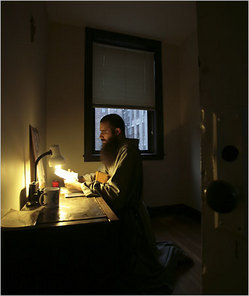 Even amid the decline in elementary biblical knowledge, help is on the way. Vatican II did much to help revive interest in Scripture, and one method that may help bridge the gap Mr. Leno so cleverly pointed out is the ancient monastic method of reading the Bible called lectio divina. The Latin expression lectio divina does not translate into English with great accuracy. Literally, it means “holy reading within the monastic tradition, and in Saint Benedict’s rule in particular, its meaning is obvious. Lectio divina is an attentive and in-depth reading of the sacred Scriptures intended not simply to satisfy one’s curiosity but to nourish one’s faith. Benedict’s monks were to nourish themselves with the divine food of Scripture in order to have sufficient resources for the journey of faith. In the Rule of Saint Benedict, the monk is exhorted to listen carefully and willingly to holy readings, the lectiones sanctae. The reading is holy because its object is the word of God. Scripture is approached not for scientific or technical reasons but in order to deepen one’s personal commitment to God and God’s Son.
Even amid the decline in elementary biblical knowledge, help is on the way. Vatican II did much to help revive interest in Scripture, and one method that may help bridge the gap Mr. Leno so cleverly pointed out is the ancient monastic method of reading the Bible called lectio divina. The Latin expression lectio divina does not translate into English with great accuracy. Literally, it means “holy reading within the monastic tradition, and in Saint Benedict’s rule in particular, its meaning is obvious. Lectio divina is an attentive and in-depth reading of the sacred Scriptures intended not simply to satisfy one’s curiosity but to nourish one’s faith. Benedict’s monks were to nourish themselves with the divine food of Scripture in order to have sufficient resources for the journey of faith. In the Rule of Saint Benedict, the monk is exhorted to listen carefully and willingly to holy readings, the lectiones sanctae. The reading is holy because its object is the word of God. Scripture is approached not for scientific or technical reasons but in order to deepen one’s personal commitment to God and God’s Son.
Lectio Divina from the Monastery to the Marketplace
All quarters of the church, from official pronouncements to informal movements, have in recent times repeatedly affirmed the need for and effectiveness of lectio divina. There are many ways in which one can encounter God through the biblical word. Yet, the rich history, significant connection to tradition, genuine spirituality, and pastoral applicability of lectio divina make it a particularly attractive method.
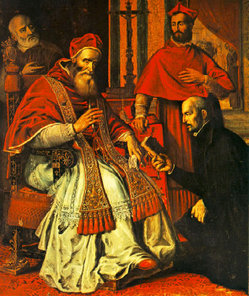 Lectio divina is one instrument of grace by which we encounter Christ in the Scriptures. When practiced every day, lectio divina fosters the kind of contact with God’s word that, over the course of a lifetime, promises a life of prayer lived out in faithful love. To suggest that a specific method for lectio divina might be necessary carries with it a risk. In our practice of this method, we might be tempted to follow rigidly the proposals offered as rules and not as suggestions. To do so would be a mistake. What lectio divina demands in the first place is an openness to the Spirit, which any master of the spiritual life would see as a prerequisite to prayer. Ignatius of Loyola’s instruction in his Spiritual Exercises to those who intend to pray is a good example. He suggests that believers must always pray “with great spirit and generosity toward their Creator and Lord.” Balance and flexibility are very important as one begins to practice lectio divina. We should always avoid rigidity, excessive formalism, or forcing things. My intention is not that the suggested schema that follows be realized as a fixed program; lectio divina is a way to encounter God, and we should always feel free to utilize it according to our own rhythms, gifts, and desires.
Lectio divina is one instrument of grace by which we encounter Christ in the Scriptures. When practiced every day, lectio divina fosters the kind of contact with God’s word that, over the course of a lifetime, promises a life of prayer lived out in faithful love. To suggest that a specific method for lectio divina might be necessary carries with it a risk. In our practice of this method, we might be tempted to follow rigidly the proposals offered as rules and not as suggestions. To do so would be a mistake. What lectio divina demands in the first place is an openness to the Spirit, which any master of the spiritual life would see as a prerequisite to prayer. Ignatius of Loyola’s instruction in his Spiritual Exercises to those who intend to pray is a good example. He suggests that believers must always pray “with great spirit and generosity toward their Creator and Lord.” Balance and flexibility are very important as one begins to practice lectio divina. We should always avoid rigidity, excessive formalism, or forcing things. My intention is not that the suggested schema that follows be realized as a fixed program; lectio divina is a way to encounter God, and we should always feel free to utilize it according to our own rhythms, gifts, and desires.
Having pointed out the importance of some prerequisites to lectio divina, such as balance,
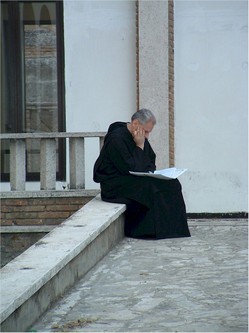 openness, and flexibility, a word is in order about the structure or steps that this ancient practice usually takes. Much has been written about these steps, but the most exhaustive and perhaps best-known example comes from Guigo II (1115-1198), the Cistercian prior at Chartres from 1173 to 1180. In his “Letter on the Contemplative Life,” also known as Scala Claustralium, Guigo gives the classic four-part expression to the lectio divina: lectio, meditatio, oratio, and contemplatio. Since Guigo’s text has become a nearly obligatory point of reference for someone considering lectio divina, it seems appropriate to reproduce here a brief summary citation from the letter:
openness, and flexibility, a word is in order about the structure or steps that this ancient practice usually takes. Much has been written about these steps, but the most exhaustive and perhaps best-known example comes from Guigo II (1115-1198), the Cistercian prior at Chartres from 1173 to 1180. In his “Letter on the Contemplative Life,” also known as Scala Claustralium, Guigo gives the classic four-part expression to the lectio divina: lectio, meditatio, oratio, and contemplatio. Since Guigo’s text has become a nearly obligatory point of reference for someone considering lectio divina, it seems appropriate to reproduce here a brief summary citation from the letter:
One day during manual labor, as I was beginning to reflect on the spiritual exercise of man, suddenly four spiritual steps appeared to my mind: reading, meditation, prayer, and contemplation. This is the ladder of the monks by which they are elevated from the earth to heaven and even though it may be formed by only a few steps, nevertheless it appears in immense and incredible greatness. The lower part rests on the earth; however, the higher part penetrates the clouds and scrutinizes the secrets of the heavens.
Now the reading consists in the attentive observation of the Scriptures with one’s spirit applied. The meditation is the studious action of the mind, which seeks the discovery of hidden truth by means of one’s own intelligence. The prayer consists in a religious application of the heart of God in order to dispel evil and obtain favors. The contemplation is an elevation into God, from the mind attracted beyond itself, savoring the joys of eternal sweetness….
Reading seeks the sweetness of the blessed life, while meditation finds it. Prayer asks for it and contemplation tastes it. Reading, in a certain way, brings solid food to the mouth, meditation chews and breaks it up, prayer obtains its seasoning, contemplation is the same sweetness which refreshes and brings joy.
Guigo sets down a four-part method, but for our purposes we will reduce that structure to three: lectio, meditatio, and oratio. The reason for collapsing the final two steps into one is simple. Prayer is at the core of the way the two final steps are conceived. By collapsing them into a third phase, we respect the progression that naturally develops from the first two steps. However, we leave open the possibility of expanding on the process of prayer by adding three more steps: discretio, deliberatio, and actio. Some critics object to any tinkering with the traditional structure of lectio divina. Even so, a brief look at the historical development of the method over the centuries shows that one can understand Guigo’s four steps as an expression of the monastic world of his time. Our minor change should be viewed in the same light.
The Practice of Lectio Divina
The first thing necessary to practice lectio divina should be obvious: time. As with anything worth doing or any relationship worth maintaining, the practice of lectio divina must be worth spending time doing. While we should avoid the kind of rigidity described above, the spiritual life does demand a certain amount of healthy discipline. Whether we want to fix a regular time, a certain period, or the most effective time, regularity is important. Our time is a precious thing, and offering it to God is a very simple and concrete first step toward our meeting God in prayer.
 Equally obvious but also quite necessary to consider is which text to use for lectio divina. Our emphasis in lectio divina remains squarely with the biblical text. It is possible to substitute other texts for biblical texts; however, we should not lightly forfeit the surpassing value of reading, meditating, and praying with what the Fathers called the sacra pagina. Jerome himself reminds us that “the text presents itself simply and easily in words, but in the greatness of its meaning, its depth is unfathomable.”
Equally obvious but also quite necessary to consider is which text to use for lectio divina. Our emphasis in lectio divina remains squarely with the biblical text. It is possible to substitute other texts for biblical texts; however, we should not lightly forfeit the surpassing value of reading, meditating, and praying with what the Fathers called the sacra pagina. Jerome himself reminds us that “the text presents itself simply and easily in words, but in the greatness of its meaning, its depth is unfathomable.”
Related to our emphasis on the biblical text itself is the presupposition that lectio divina is a continuous reading of the whole Bible. In our practice of lectio divina, we should avoid the temptation to select texts well suited to topics chosen in advance. By attending to the whole of Scripture, as the liturgy does in the lectionary, we preserve the context of biblical revelation, both the Old and New Testament. We must avoid the risk of allowing the lectio to “overflow the riverbanks of the tradition and the church,” as Cardinal Martini has written. Practicing lectio divina within the context of the whole of biblical revelation emphasizes the unity of Scripture and our belief in the Bible’s inspiration by God. Moreover, emphasis on the unity of Scripture allows us to avoid the temptation of placing Scripture at the service of ideology or subjectivism.
 Time set aside for God should take on a dimension different from the rest of one’s day. To help mark that moment, most spiritual masters suggest that the person who sets out to pray begin by making some kind of epiclesis, which is an invocation or “calling down” of the Holy Spirit to consecrate. In the Eucharist, we call down the Spirit upon the bread and wine to transform them into the body and blood of Christ. As we begin lectio divina, we should remind ourselves that it is through the work of God in the Spirit that the written word is transformed in our lives into the living word.
Time set aside for God should take on a dimension different from the rest of one’s day. To help mark that moment, most spiritual masters suggest that the person who sets out to pray begin by making some kind of epiclesis, which is an invocation or “calling down” of the Holy Spirit to consecrate. In the Eucharist, we call down the Spirit upon the bread and wine to transform them into the body and blood of Christ. As we begin lectio divina, we should remind ourselves that it is through the work of God in the Spirit that the written word is transformed in our lives into the living word.
The Four Steps of Lectio Divina: Lectio, Meditatio, Oratio, Actio
Having set aside the time, “selected” the text, and invoked the Spirit, we are ready to begin the first formal step of lectio divina, called the lectio. This is the moment in which we read and reread a passage from the Old or New Testament, alert to its most important elements. The operative question is, What does the text say? Patient attentiveness to what the text has to say characterizes our stance before it. We should read the text for itself, not to get something out of it, like a homily, a conference, or a catechism lesson. The word of God should be allowed to emerge from the written word.
In lectio, each person’s experiences and talents before the text come into play. The more experience or education one has, the more one will potentially bring to the text. Knowledge of biblical languages or an understanding of theology can also enrich one’s reading. Consultation of available biblical commentaries or dictionaries can be especially helpful as we attempt to expand our understanding about what the text is saying. Paying attention to grammar, the usage of words, and the relationships of verbs to nouns or of subjects to objects can make the text begin to take on new and unexpected significance.
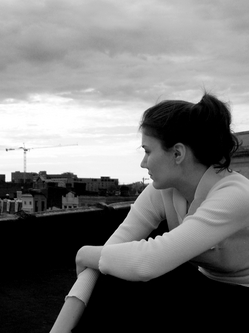 The second step, called the meditatio, is equally important. We leave behind the specifics of the text and focus instead on what is behind it, on the “interior intelligence” of the text, as Guigo puts it. The meditatio is a reflection on the values which one finds behind the text. Here, one must consider the values behind the actions, the words, the things, and the feelings which one finds in a particular scriptural passage. Anyone who honestly seeks God and one’s authentic self in prayer will hear the echoes of joy, fear, hope, and desire coming from the sacred page. The operant question for this stage doesn’t stop at what the text says, but asks, What does the text say to me? We seek to make emerge from history and context the specific message of the text. The shift from external forms to internal content makes this stage an important one.
The second step, called the meditatio, is equally important. We leave behind the specifics of the text and focus instead on what is behind it, on the “interior intelligence” of the text, as Guigo puts it. The meditatio is a reflection on the values which one finds behind the text. Here, one must consider the values behind the actions, the words, the things, and the feelings which one finds in a particular scriptural passage. Anyone who honestly seeks God and one’s authentic self in prayer will hear the echoes of joy, fear, hope, and desire coming from the sacred page. The operant question for this stage doesn’t stop at what the text says, but asks, What does the text say to me? We seek to make emerge from history and context the specific message of the text. The shift from external forms to internal content makes this stage an important one.
The meditatio is an activity that engages our intellect. As we pass from the second to the third stage of lectio divina, we move more into the realm of religious emotions. Remaining on an intellectual level can be safe and comfortable, but the goal of prayer is not knowledge about God, but God himself. In the oratio, our imagination, will, and desires are engaged as we seek union with God. Oratio in its most fundamental sense is dialogue with God. Gregory the Great called it “the spontaneous meeting of the heart of God with the heart of God’s beloved creature through the word of God.”
When we progress from meditatio to oratio, an immediate experience of infused mysticism is hardly to be expected. Mystical union with God is not necessarily an ordinary part of Christian life. Nevertheless, the passage from meditatio to oratio is the vital and decisive moment of Christian experience. The more deeply we enter the oratio, the more we move beyond the text, beyond words and thoughts. The lectio is useful and the meditatio is important since they lead us to the oratio, which is life in its fullest sense, the life of Christ that he lives in the one who contemplates him. Oratio is the passage from the values behind the text to adoration of the person of Jesus Christ, the one who brings together and reveals every value. Unlike the lectio and meditatio, there is no operant question in the oratio. At its core, oratio is the silent adoration of the creature before the Creator, a rare and miraculous gift.
When the person who practices lectio divina reaches the level of oratio, it would seem that that moment would be conclusive. However, the dynamism of prayer that began during the epiclesis before the lectio is not interrupted here. To the contrary, it naturally continues and the oratio, as we are proposing it here following Cardinal Martini’s insight, possesses its own steps, called discretio, deliberatio, and actio. These three steps represent the way lectio divina is lived out in daily life. Given the growing dissociation of the faith from daily life, these three successive moments take on great significance.
Since the meditatio intends to put one in contact with the values of Christ, to encourage our identification with those things that are important to Christ, we naturally come to moments of decision. The discretio is the capacity that the Christian acquires through grace to make the same choices as Christ. Cardinal Martini describes discretion like this: “It is the discernment of that which, in a determined historical moment, is best for oneself, for others, and for the church.”
The second moment of the oratio is called the deliberatio. It is an interior act by which one decides in favor of the values of the gospel. One chooses to associate oneself with Christ and everything that association represents–in a word, discipleship. If the discretio is described as the capacity of a person to choose, then the deliberatio is the choice itself.
The final moment is called actio. In this final step, the choice we make in the deliberatio is given form and substance. Prayer becomes something more than simply setting aside time for God or an attempt to better ourselves. Our lives begin to take shape from the choices we have made as a result of prayer. The actio is the integration of a kind of apostolic consciousness that informs our choices so that we have made and lived our choices from our encounter with the living God.
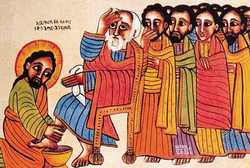 Some critics would leave these last steps, particularly the actio, out of any proposed lectio divina. The addition of an extra step suggests perhaps overzealousness or even the influence of an “ideology of efficacy” regarding one’s prayer. Too often we feel we need to make prayer into something. However, in the face of a modern world in which the outward signs of the mystery of God are ever more difficult to recognize, where a daily experience of gospel or even transcendent values becomes harder to find, and where choices besiege one’s conscience and stifle rather than uplift the Spirit, this criticism is unconvincing. If anything, the connection between prayer and our life choices should become more explicit, not less. The faith, hope, and love made manifest in the choices our lives become must be nourished by contact with the word of God.
Some critics would leave these last steps, particularly the actio, out of any proposed lectio divina. The addition of an extra step suggests perhaps overzealousness or even the influence of an “ideology of efficacy” regarding one’s prayer. Too often we feel we need to make prayer into something. However, in the face of a modern world in which the outward signs of the mystery of God are ever more difficult to recognize, where a daily experience of gospel or even transcendent values becomes harder to find, and where choices besiege one’s conscience and stifle rather than uplift the Spirit, this criticism is unconvincing. If anything, the connection between prayer and our life choices should become more explicit, not less. The faith, hope, and love made manifest in the choices our lives become must be nourished by contact with the word of God.
Conclusion
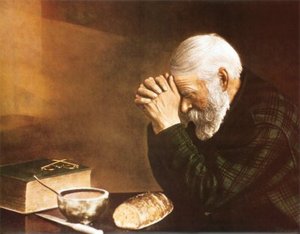 Lectio divina is one graced instrument to bridge the gap that exists between our hearts and God’s. As the faith risks being further dissociated from daily life, the simplicity and potential of a method like lectio divina take on greater significance. Firmly rooted in the church’s tradition, it presumes careful attention to what biblical specialists are thinking and teaching. Rigorous study is complemented by disciplined meditation and prayerful contemplation of the word of God. Far from being an objective or rigid technique whereby one produces religious experience, lectio divina represents daily contact with God’s word that occurs within a lifetime’s engagement with the Living God. The principal aim of such engagement is to foster living prayer in faithful love. Lectio divina unfolds more than it proceeds; progresses and develops more than it advances.
Lectio divina is one graced instrument to bridge the gap that exists between our hearts and God’s. As the faith risks being further dissociated from daily life, the simplicity and potential of a method like lectio divina take on greater significance. Firmly rooted in the church’s tradition, it presumes careful attention to what biblical specialists are thinking and teaching. Rigorous study is complemented by disciplined meditation and prayerful contemplation of the word of God. Far from being an objective or rigid technique whereby one produces religious experience, lectio divina represents daily contact with God’s word that occurs within a lifetime’s engagement with the Living God. The principal aim of such engagement is to foster living prayer in faithful love. Lectio divina unfolds more than it proceeds; progresses and develops more than it advances.
Dedicated practice engages the whole person–the intellect as well as the imagination, the will as well as the affect. It promises contact with God that is the normal fulfillment of prayer. Lectio divina is open to every person and not the exclusive property of a select few. Those who practice lectio divina reaffirm the belief that the proper place for the word of God is in the hands of the faithful.
Wouldn’t Geppetto have been pleased if, instead of his firm response, “Pinocchio,” that young man had looked into Jay Leno’s TV camera and answered with conviction, “Jonah”?
Reprinted from Chicago Studies 39 (2000): 211-19.
Lord our God,
You revealed to blessed Mechtild, your virgin, the hidden secrets of your providence. May we who know You now through faith rejoice hereafter to see You face to face.
Grant this through our Lord Jesus Christ, Your Son, who lives and reigns with you and the Holy Spirit, one God, for ever and ever.
A brief biography can be read here. One key point in the life of Saint Mechtild is that she was the dear friend of Saint Gertrude the Great and who had a spiritual daughter in the other Mechtild, that of Magdeburg, who lived at the same time.
Yep! Mom is 66 today! I was able to come to New Haven for dinner with the family to properly celebrate with Mom. God’s blessings. A few recent pics.
(Here’s 3 of 4 us.)
(Here’s Mom and me.)
(Here’s me with Aunt Gloria.)
(Mom, Lauren and Aunt Gloria on a recent trip to Rome.)
And tomorrow is the 42nd wedding anniversary of my parents. May God grant many years!
Edward Pentin writing for Terrasanta.net tries to contextualize the rather distasteful events among “Christians” at the Church of the Holy Sepulchre earlier in the month. I am still trying to wrap my mind around the complexities that exist in the Holy Land. Certainly, there are many and not easy to sort out. But the scandal of these “ecclesial acts” by betray the fragility of faith and lack of engagement in the spiritual life. For the life me I can’t help but think these monks have abandoned faith and salvation in Christ and yet persist in living as monks, at least on the superficial level.